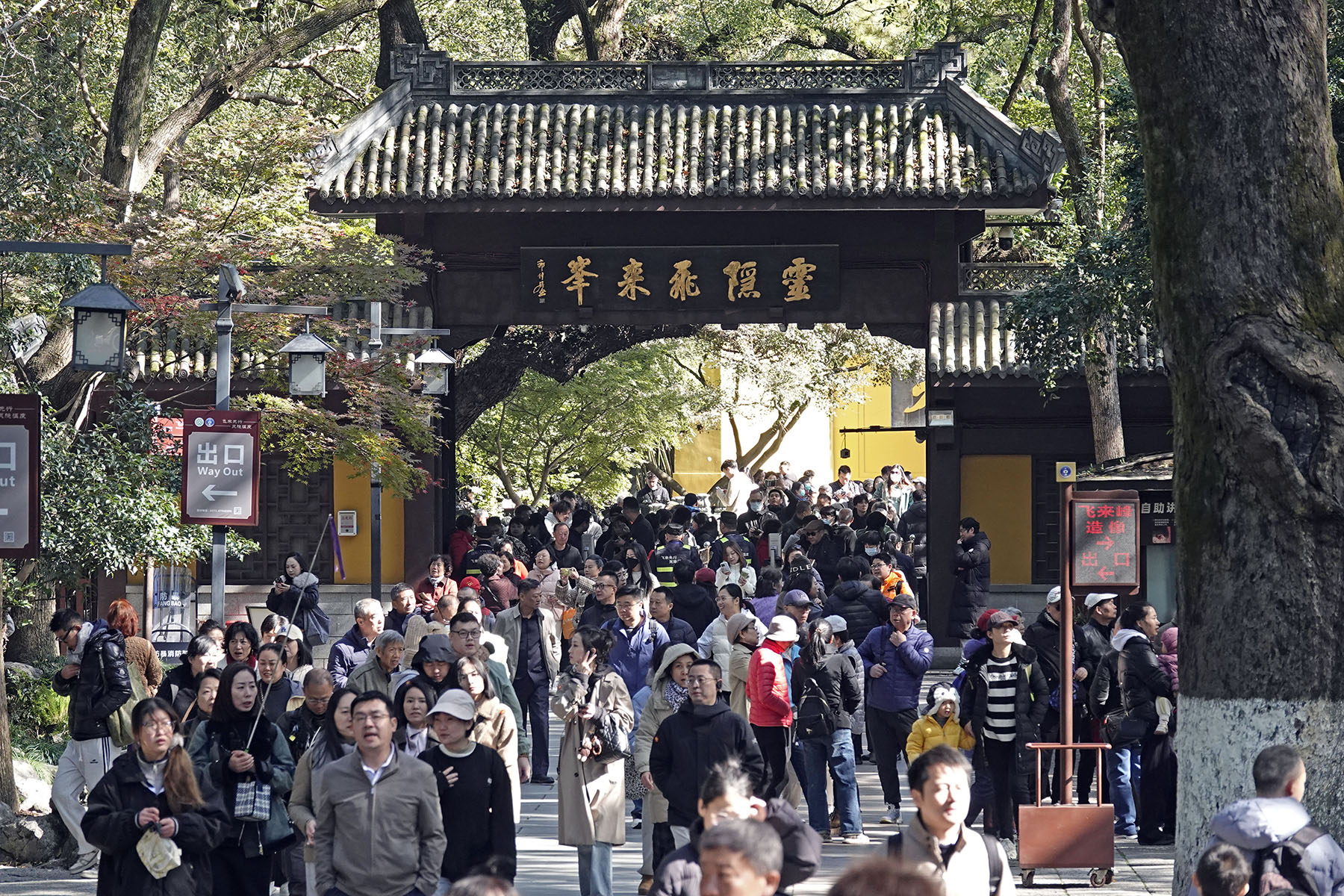
One of the must-see tourism spots in Hangzhou in Zhejiang province — the Lingyin Feilaifeng Scenic Area — announced it would offer free admission to all visitors starting Dec 1, a move officials say demonstrates the city's historical vision and cultural confidence that the best scenery should be accessible to all.
The site is home to Lingyin Temple, one of China's 10 most renowned ancient temples. First built in the Eastern Jin Dynasty (317-420), the temple has a history of more than 1,700 years and is an important Buddhist cultural site known for its flourishing incense traditions.
The scenic area announced on Wednesday morning that visitors, both local and international, will no longer need to pay the 45 yuan ($6.32) entrance fee or purchase the 30 yuan incense voucher for Lingyin Temple. The site will later implement a "real-name reservation and time-slot visit" system, requiring visitors to make reservations in advance.
Experts are calling this another major step in opening-up and benefiting the public, following the 2002 decision to offer admission to the West Lake scenic area. They suggest it marks Hangzhou's deep transition from a "ticket-based economy" to a "comprehensive economy".
Lingyin Feilaifeng has long been one of Hangzhou's most popular attractions, generating considerable ticket revenue. In 2024, the site received 10.88 million visitors, and as of Nov 13, 2025, it had welcomed around 10.06 million visitors.
Zhou Guohui, president of the Zhejiang Provincial Federation for Science Popularization, told Tide News that the decision involves both economic considerations as well as public order and safety.
Zhou expressed deep respect for the decision, adding that he believes the Hangzhou government weighed the pros and cons before making a determination.
"This move, although it appears to give up ticket revenue, actually creates a major 'traffic entry point' that greatly lowers the threshold for visitors and will attract huge flows of people," Zhou said. He added that if management, guidance, and services are effective, it will create unlimited possibilities for subsequent consumption scenarios, including dining, accommodation, cultural products and transportation.
The news was met with enthusiasm by visitors.
"This is wonderful. It's my first time at Lingyin, and I just happened to hear such good news," said a visitor surnamed Lin from Huzhou, Zhejiang province, who learned about the announcement while resting in the scenic area and immediately forwarded the news to others.
Lin, who often travels to Hangzhou for business but had never visited Lingyin Temple before, said, "Looks like I came a bit early. If I had come next month, our family of three could have saved more than 200 yuan. I'm considering coming again next month."
The concept of free admission bringing broader economic benefits is not new to Hangzhou. In 2002, the city removed fences and canceled entrance fees at West Lake under the slogan "Return West Lake to the People". This made West Lake the first 5A-level scenic area in China to open to the public for free.
Although ticket revenue disappeared, the subsequent rise in visitor numbers spurred the rapid development of dining, retail and other service industries, generating enormous benefits.
Hangzhou's total tourism revenue grew from 29.4 billion yuan in 2002 to 345.03 billion yuan in 2024. Beyond the significant economic gains, the improvements in reputation and cultural influence were equally impressive. The free-entry West Lake, which also saw continuous efforts in cultural preservation and promotion, was inscribed on the UNESCO World Heritage List in 2011.
Contact the writers at chenye@chinadaily.com.cn


